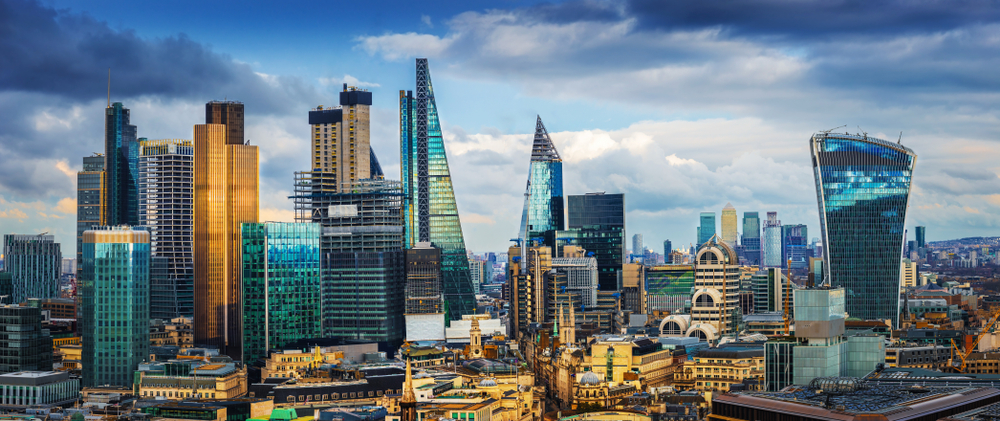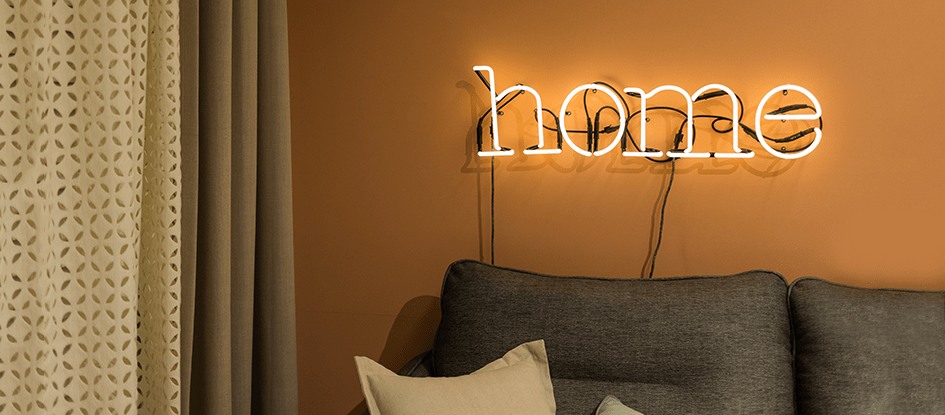
However, as recent research into the impact on adults has linked it with digital eye strain, impaired sleep, as well as worsened mental health, many of us are now looking for an escape from our screens.
Digital detox hotspots in London
In an effort to divorce us from our devices, venues across the capital are implementing tech bans. From full-on confiscations to photography bans, Barratt London has uncovered all the places in London you can head to for a break from your mobile phone.

Pubs and bars
Fitzrovia’s The Bricklayers Arms is the perfect pub if you want to have a quiet conversation with a friend. A technology-free zone, there is no piped music, no television screens and no gaming machines. There are also signs expressing that phones, tablets and laptops are banned.
Part of the same chain as The Bricklayers Arms, as well as a swearing ban, there is also a long-standing ‘no mobile phones’ rule at Glasshouse Stores in Soho.
The website of Soho pub, The French House, declares it a ‘haven for conversationalists’. It’s no phones rule makes it popular with celebrities - ideal for star spotting!
At traditional London pub, The Nags Head, in Covent Garden, you’re not even allowed to use your phone to pay so it’s essential you bring your physical card.
In fitting with the elegant 1930s-style interior, Bermondsey Arts Club does not have WiFi. The venue encourages visitors to take calls outside, preserving the charming ambience of this intimate bar.
Restaurants
Phones are prohibited at The Clink which is located at HMP Brixton and strives to reintegrate prisoners through the culinary arts.
Founder of pioneering sustainable restaurant chain St John, Fergus Henderson, has said publicly that phones have no place at the table. They have venues in Farringdon, Marylebone and Spitalfields.
Dans Le Noir is an experiential restaurant where guests enjoy a mystery menu in total darkness, served by visually impaired staff. As such, phones are not allowed.
Entertainment venues
Since 2021, club-goers have been given stickers to cover their phone cameras and screens on entering Fabric nightclub. The idea is to preserve the space for freedom, self-expression and enjoyment of the music.
Likewise, in an effort to provide a safe space for guests to explore their sexualities in comfort, mobile phones are also prohibited at LGBTQ-friendly venue, FOLD.
Similarly, at the groundbreaking ABBA Voyage experience, guests are not permitted to take photos, or make video or audio recordings. When the show first launched in 2022, photographs and 30 second videos were allowed but there is now a blanket ban.
It’s the same story at world-renowned jazz music venue, Ronnie Scott’s Jazz Club, where mobiles are required to be switched off while you’re inside the club.
The West End stars, breathtaking choreography and exquisite costumes should be enough to keep you entertained at the London Cabaret Club so you shouldn’t even notice the restriction on phones.
Digital detox retreats near London
If you’re looking for a more extended break from technology, there are a number of getaways within reaching distance of London where guests are encouraged to leave the digital world behind overnight.

Looking for ‘wellness with a side of humour’? Escape the hustle and bustle of everyday life and breathe freely at The Detox Barn in the picturesque Sussex countryside.
Unplugged have digital detox cabins in over 20 locations in the UK countryside. There’s no WiFi and guests are encouraged to lock away their phones in the lockboxes provided to break the cycle of mindless scrolling. Olive, Bunty, Monty and Koya are all easily accessible for Londoners.
Less than an hour from central London, The Glass House is a detox and wellness retreat set amongst Essex fields. Although the experience promises that no two days will be the same, the one constant is that the wellness team do everything to help you leave feeling fulfilled and rejuvenated.
Vipassana is a type of silent meditation. Dhamma offer courses in the Sussex countryside where guests enjoy 10 full days of medication. No outside communication is allowed for the duration of the course.
Low internet zones outside London
The following towns and cities are all no more than 1 hour 40 minutes from London - easy to escape to from London for the day. Nationally, they have some of the lowest internet download speeds in the country. Usually seen as a negative, perhaps this is a positive if you’re trying to digital detox?

Clacton-on-Sea is the largest town on the Essex Sunshine Coast. As well as a pleasure pier, it’s the perfect getaway spot for golf lovers and watersports fans.
Spend a day winding your way down cobbled streets and browsing the solid array of independent shops in the mediaeval city of Canterbury.
The towns of Hastings and Rye are just a 21-minute train ride from each other. Sitting on the East Sussex coast, both have unique coastal charm.
A small town with a big heart, Lewes is a great place to shop with many independent, antique and quirky shops. There’s also a working brewery and a number of historical pubs for any beer lovers.
Chichester dates back to Roman times. Stroll the pedestrianised streets, visit the harbour or visit the museum where you can see the remains of Chichester’s bath house.
Sudbury in south Suffolk is the Stour Valley. The market town dates back to the Saxons and is surrounded by rolling meadows, an Area of Outstanding Natural Beauty.
Arundel Castle sits at the centre of the historic West Sussex town. As well as the castle, museum, galleries, shops and restaurants, Arundel is the open door to the South Downs National Park - 1,627km of peaceful countryside and unforgettable views.
Tips for setting digital boundaries in everyday life
We asked Hector Hughes, co-founder of digital detox cabin brand, Unplugged, to explain why scheduling time away from our devices is a good idea and how to begin a healthier relationship with technology.
Why are we addicted to our devices?
“The good news: it’s not really our fault. Phones and social media have been designed to be addictive to get us to use them more. They provide short-form content with snappy hooks and their highly intuitive algorithm serves you similar content to keep us scrolling.
“Scrolling social media activates the brain’s reward centre through likes and comments, but also through interesting content. When we encounter something novel or unexpected, like a shocking news headline or a dramatic social media post, our brain releases dopamine.
“Similar to a slot machine, each time you pull the lever, you're uncertain of the outcome. This uncertainty and variable rewards (whether it's a win or interesting content) triggers a dopamine release.
“When we scroll through our phones, every swipe or click presents the potential for something new, keeping us engaged and continuously scrolling. The last ten videos have been boring, but maybe the next one…
“We’re also in a world where most people share things on social media about their lives, or a new trend. If we don’t keep opening the apps, there is a fear we might miss something. This also applies to our work lives, as we’re contactable from anywhere, at any time.
“We can be scared of switching off our devices through fear of missing an important email or update. We like to call this the Fear of Switching Off, or FOSO.”
What issues are associated with device usage?
“Depending on how we use devices, excessive phone use can be a big contributor to stress and anxiety. This can be through comparison to unachievable ideals set on social media, or being bombarded by emails at all hours of the day.
“It’s also not great for our cognitive function. We use our phones as an extension of our brains, and useful tools like AI and Google means we don’t tend to problem solve like we used to, which can impact our memory and learning.
“Sleep is another issue associated with excessive phone use, especially in the morning and at night. Using our phones in the evening can disrupt our sleep schedule as the blue light can suppress the production of melatonin, the hormone that makes us feel sleepy.
“It can also eat into our sleeping hours and autoplay and clever algorithms keep us watching our screens into the early hours.”
What misleading myths about device usage do we falsely believe?
“A lot of us think that if we’re not looking at our phones, they’re not getting in the way of our interactions, relationships and focus. But simply having them in your hand or on the table can impact how focused you are, and how engaged you are in conversations.
“The ‘Face-Down Phone Theory’ suggests that even the presence of your phone can impact your cognitive function and reduce the quality of connection with others.
“Another is that you need to go cold turkey to reduce your phone usage. It definitely helps to kickstart the change by going on a digital detox as you’re woken up to the amount of time you usually spend on screens, but you can also just make small changes in your everyday life to help you.
“It’s within your control to switch off notifications or leave your phone at home. You can easily remove your phone from your bedroom at night if you think it’s getting in the way of your sleep.”
How can we apply the principles of a digital detox to everyday life?
“The easiest thing you can do is setting phone-free zones in your home, such as the dinner table or bedroom. Or setting times during the day or the week that you dedicate to being screen-free. Maybe this is a date night with your partner, or you ban phones for the last 2 hours of every morning or evening.
“You can also make small changes such as replacing your phone alarm clock with a traditional one (or a light alarm clock). This means you don’t need to use your phone last thing at night, or first thing in the morning. Switching off notifications is also another easy win - the less you see your phone light up, the less inclined you are to pick it up.”

